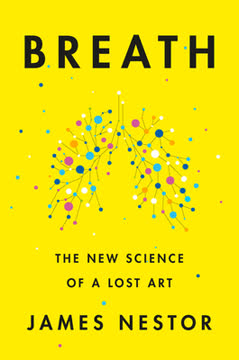Key Takeaways
1. Meditation transforms the brain, leading to lasting positive traits
The true mark of a meditator is that he has disciplined his mind by freeing it from negative emotions.
Altered traits. Meditation practice can lead to enduring changes in brain structure and function, resulting in positive qualities that persist beyond meditation sessions. These "altered traits" include enhanced attention, emotional regulation, and compassion. Research shows that even short-term meditation practice can yield benefits, but more profound changes occur with long-term, intensive practice.
Scientific evidence. Recent neuroscience research provides compelling evidence for meditation's transformative effects:
- Increased gray matter density in brain regions associated with learning, memory, and emotional regulation
- Strengthened connectivity between brain areas involved in self-regulation and emotional processing
- Reduced activity in the default mode network, associated with mind-wandering and self-referential thoughts
- Enhanced immune function and telomerase activity, potentially slowing cellular aging
2. Neuroplasticity enables meditation to reshape neural circuitry
Neuroplasticity provides an evidence-based framework and a language that makes sense in terms of current scientific thinking.
Brain malleability. Neuroplasticity refers to the brain's ability to change its structure and function in response to experience. This phenomenon underlies meditation's capacity to alter the brain. Through repeated practice, meditation can strengthen neural pathways associated with positive mental states and weaken those linked to negative ones.
Examples of neuroplasticity in meditation:
- Increased cortical thickness in areas related to attention and sensory processing
- Enlarged hippocampus, associated with learning and memory
- Reduced amygdala volume, linked to decreased stress and anxiety
- Strengthened connections between the prefrontal cortex and amygdala, improving emotion regulation
3. Different types of meditation cultivate distinct mental skills
What you do determines what you get.
Meditation diversity. Various meditation techniques target different aspects of mental functioning. Understanding these distinctions is crucial for both practitioners and researchers. Some common types include:
- Focused attention: Enhances concentration and reduces mind-wandering
- Open monitoring: Improves meta-awareness and non-reactive observation
- Loving-kindness: Cultivates compassion and positive emotions towards others
- Body scan: Increases body awareness and promotes relaxation
Research implications. Studies must account for the specific type of meditation being practiced to accurately assess its effects. Different techniques may lead to distinct neurological and behavioral outcomes, highlighting the importance of precise methodology in meditation research.
4. Compassion meditation rapidly enhances empathy and altruism
The first person to benefit from compassion is the one who feels it.
Swift benefits. Compassion-based meditation practices, such as loving-kindness meditation, show remarkably rapid effects on empathy and prosocial behavior. Even short periods of practice can lead to measurable changes in brain activity and behavior.
Key findings:
- Increased activity in brain regions associated with empathy and positive emotions
- Enhanced connectivity between areas involved in self-awareness and social cognition
- Greater likelihood of helping others in need, even at a personal cost
- Reduced implicit bias towards stigmatized groups
These effects suggest that compassion meditation may be a powerful tool for promoting social harmony and addressing issues like prejudice and social inequality.
5. Long-term meditation practice yields profound neurological changes
Meditation seems to transform the resting state—the brain's default mode—to resemble the meditative state.
Expert meditators. Studies of long-term practitioners, particularly those with tens of thousands of hours of practice, reveal extraordinary changes in brain function and structure. These findings provide insight into the upper limits of mental training and human potential.
Remarkable observations:
- Sustained high-amplitude gamma oscillations, never before seen in non-meditating individuals
- Ability to enter and exit meditative states rapidly and effortlessly
- Reduced pain sensitivity and faster recovery from stressful stimuli
- Apparent slowing of brain aging processes
These changes suggest that intensive meditation practice can lead to a fundamental rewiring of the brain, resulting in enduring positive traits and enhanced well-being.
6. Mindfulness reduces stress reactivity and improves emotional regulation
Mindfulness practice can pay off quickly in some ways, even if you have just started.
Stress reduction. Mindfulness meditation has been shown to decrease reactivity to stressors and improve overall emotional regulation. This effect is particularly relevant in our increasingly stressful modern world.
Key mechanisms:
- Reduced activity in the amygdala, the brain's threat-detection center
- Increased connectivity between the prefrontal cortex and amygdala, improving top-down control of emotions
- Enhanced ability to observe thoughts and emotions without becoming caught up in them
- Faster recovery from negative emotional states
These benefits make mindfulness a valuable tool for managing stress, anxiety, and depression, leading to its widespread adoption in clinical settings.
7. Meditation can be adapted for wide accessibility and societal benefit
We envision a world where widespread mental fitness deeply alters society for the better.
Democratizing meditation. While traditional meditation practices often require significant time and dedication, researchers and practitioners are developing more accessible forms that can benefit a wider population.
Innovative approaches:
- Brief, app-based mindfulness exercises for daily use
- Meditation-derived techniques integrated into schools and workplaces
- Compassion training programs for healthcare professionals and first responders
- Neurofeedback systems that provide real-time information on brain states
By adapting meditation techniques to fit modern lifestyles and leveraging technology, we can harness the benefits of these practices to address pressing societal issues such as mental health, education, and social cohesion.
Last updated:
FAQ
What's Altered Traits about?
- Exploration of Meditation's Impact: Altered Traits by Daniel Goleman and Richard J. Davidson investigates how meditation affects the mind, brain, and body, using scientific research and personal anecdotes.
- Focus on Altered Traits: The book emphasizes "altered traits," which are enduring changes in personality and behavior from sustained meditation, contrasting with temporary "altered states."
- Integration of Science and Tradition: It bridges ancient meditation practices with modern neuroscience, showing how meditation can lead to profound personal transformation.
Why should I read Altered Traits?
- Scientific Backing: The book is grounded in rigorous scientific research, making it a credible source for understanding meditation's benefits.
- Practical Applications: Readers can learn how to apply meditation techniques to enhance well-being, reduce stress, and cultivate compassion.
- Broader Implications: It discusses potential societal benefits, such as increased empathy and reduced conflict, making it relevant for individuals and communities.
What are the key takeaways of Altered Traits?
- Meditation Alters Traits: Sustained meditation can lead to lasting changes in traits like compassion and emotional regulation, supported by scientific evidence.
- Mindfulness and Compassion: Practices like mindfulness and loving-kindness meditation are crucial for emotional well-being and empathy.
- Neuroplasticity: Meditation promotes neuroplasticity, allowing the brain to form new neural connections, leading to long-term benefits.
What are the best quotes from Altered Traits and what do they mean?
- "Attention means attention.": Highlights the central role of focus in meditation, essential for cultivating mindfulness.
- "Meditation builds the brain.": Suggests that meditation can lead to structural brain changes, enhancing attention and emotional regulation.
- "The more you practice, the lower the level becomes of these pro-inflammatory cytokines.": Points to meditation's physiological benefits, such as reducing inflammation.
What is the difference between the deep and wide paths of meditation in Altered Traits?
- Deep Path: Involves intensive, traditional practices focusing on profound inner transformation and altered traits.
- Wide Path: Includes accessible forms like mindfulness-based stress reduction, easier to integrate into daily life but may not lead to the same depth of change.
- Confusion Between Paths: The authors caution against conflating these paths, as they have different goals and outcomes.
How does meditation affect attention according to Altered Traits?
- Improved Focus: Meditation enhances selective attention and vigilance, allowing better concentration on tasks.
- Neural Changes: Strengthens connections in the brain's attention circuitry, improving cognitive control and reducing distractions.
- Long-Term Benefits: Sustained practice leads to lasting improvements in attention, with long-term meditators showing greater focus.
What are altered traits, and how are they different from altered states in Altered Traits?
- Definition of Altered Traits: Enduring changes in personality and behavior from consistent meditation, like increased compassion and resilience.
- Contrast with Altered States: Temporary experiences during meditation, such as bliss, which don't necessarily lead to lasting changes.
- Significance of Practice: The true value of meditation lies in cultivating altered traits that enhance daily life.
How does meditation change the brain according to Altered Traits?
- Increased Cortical Thickness: Long-term meditators show greater thickness in brain areas related to attention and emotional regulation.
- Altered Brain Activity: Changes in activity patterns, like increased gamma wave activity, are linked to heightened awareness and emotional processing.
- Slower Aging of the Brain: Meditation may slow brain aging, with meditators showing younger brain characteristics.
What types of meditation are discussed in Altered Traits?
- Mindfulness Meditation: Focuses on the present moment, enhancing emotional regulation and reducing stress.
- Loving-Kindness Meditation: Generates feelings of compassion, linked to increased empathy and positive emotional states.
- Concentration Practices: Improve focus and attention, essential for deeper meditation experiences.
What is the relationship between meditation and health in Altered Traits?
- Psychological Benefits: Meditation reduces psychological distress, including anxiety and depression, improving mental health outcomes.
- Physiological Changes: Linked to reduced inflammation and lower cortisol levels, suggesting positive impacts on overall health.
- Long-Term Health Effects: May lead to improved immune function and reduced risk of chronic diseases, highlighting holistic benefits.
How does Altered Traits address the skepticism around meditation research?
- Critical Examination: Acknowledges limitations in research, such as small sample sizes, and emphasizes the need for rigorous studies.
- Call for More Research: Advocates for further investigation into meditation's specific mechanisms and effects.
- Balanced Perspective: Cautions against oversimplification and hype, encouraging a critical approach to meditation.
What are the societal implications of meditation as discussed in Altered Traits?
- Promoting Kindness and Compassion: Widespread meditation could foster empathy and reduce societal conflicts, creating harmonious communities.
- Public Health Benefits: Integrating meditation into public health could improve mental health outcomes and reduce healthcare costs.
- Cultural Shift: Envisions a future prioritizing mental fitness alongside physical health, encouraging practices that enhance mental and emotional well-being.
Review Summary
Altered Traits explores the scientific evidence behind meditation's effects on the mind, brain, and body. The authors, Goleman and Davidson, review decades of research, highlighting both promising findings and limitations. Readers appreciate the rigorous scientific approach, though some find the writing dry. The book discusses various meditation practices and their impacts on stress, attention, compassion, and well-being. While not a how-to guide, it provides valuable insights into the long-term benefits of consistent meditation practice, inspiring many readers to commit to or deepen their meditation journey.
Similar Books









Download PDF
Download EPUB
.epub digital book format is ideal for reading ebooks on phones, tablets, and e-readers.













